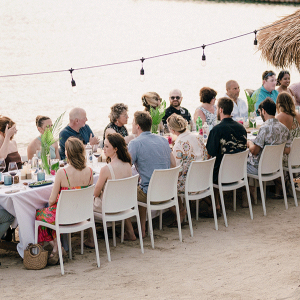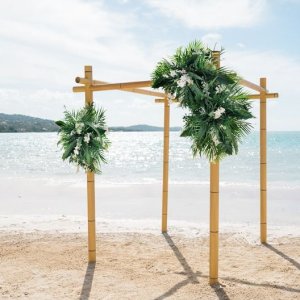Planning a destination wedding outside of the U.S. is a dream come true for many couples — romantic views, cultural charm, and a once-in-a-lifetime experience surrounded by your favorite people. But along with the magic comes a unique set of logistical hurdles that can easily be overlooked if you’re not prepared.
Whether you're saying I do in the rolling hills of Tuscany, on a sun-kissed beach in the Caribbean, or inside a centuries-old chateau in France, there are a few must-do planning tasks that will ensure your big day goes off without a hitch.
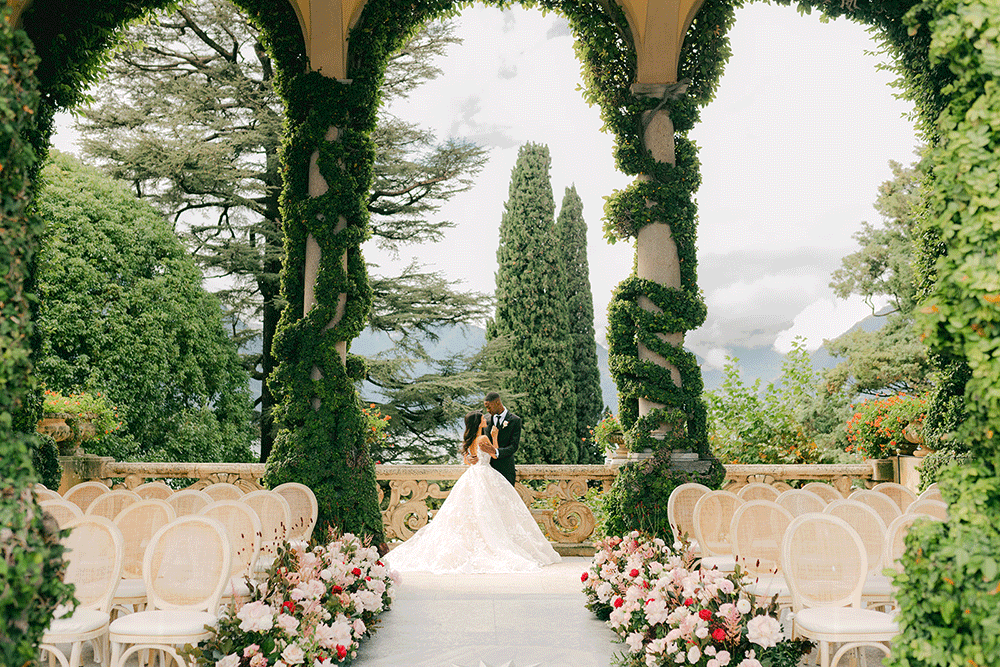
Photo: Alison Mae Photography
"One of the smartest investments you can make? A local wedding planner. A seasoned planner who knows your dream destination inside out is truly worth their weight in gold. But finding the right fit is key. After all, this is someone you’ll be working closely with on one of the most important days of your life. Browse their website and socials, then schedule a call. Talk about your ideas, your style, your must- haves. You'll know when it clicks. A great planner brings invaluable insider knowledge. Think trusted vendors who deliver on time and on budget, shortcuts that save you money and headaches, and an address book full of the island’s best- kept secrets." —Tracy Guerrero, Indigo & Visit Antigua and Barbuda
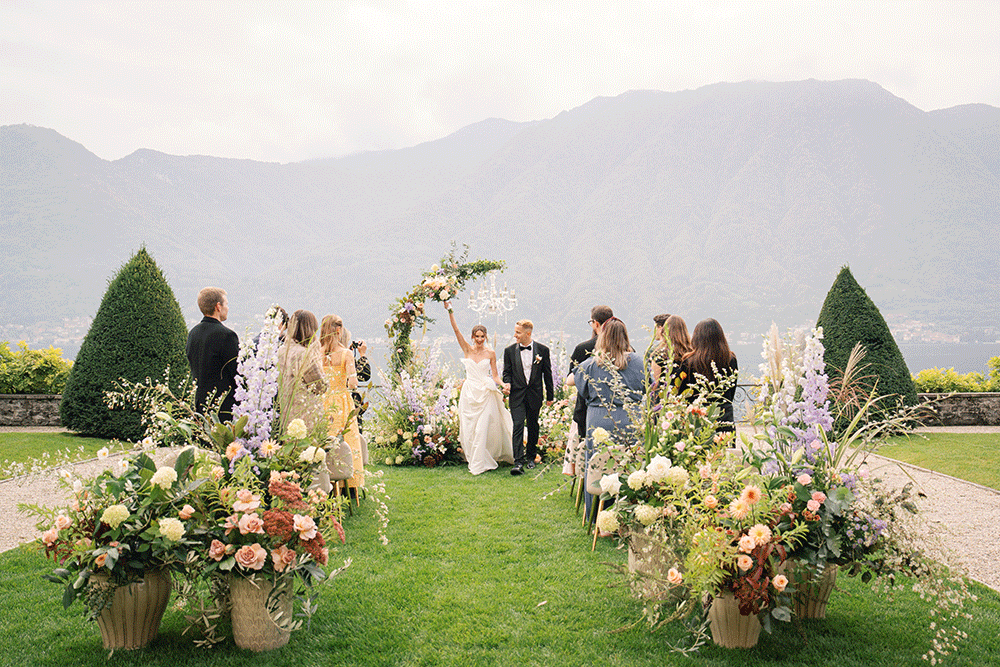
Photo: Masha Sakhno Photo
Understand Legal Requirements by Country
"Before you pick your venue, research local marriage laws. Every country has different requirements, and they can be surprisingly strict: Do you need to be in the country for a certain number of days before the ceremony? Are blood tests, medical certificates, or translated documents required? Will your marriage be legally recognized at home, or should you handle the legal paperwork locally and have a symbolic ceremony abroad." —Cathy O’Connell, Co-Founder/Creative Director, COJ Events
"Each country has its own set of legal requirements for non-residents looking to get married. Some may require you to be in the country for a set number of days before the ceremony. Others may need translated documents, apostilles, or blood tests (yes, really). Tip: Consider working with a local planner or hiring a legal consultant to help you navigate the paperwork — or opt for a symbolic ceremony abroad and handle the legalities at home." —Jennifer Cortiella, Cortiella Photography
"Destination weddings often come with their own paperwork. If either of you has been married before, you’ll need originals (and copies!) of your Decree Absolute or Death Certificate, and possibly your birth certificate if names have changed. Pack these documents in your hand luggage. Nothing kills the mood like realizing you left vital papers at home." —Tracy Guerrero, Indigo & Visit Antigua and Barbuda

Photo: Xico Gutierrez Photo
Respect Local Customs and Cultural Norms
"Your wedding should feel authentic and respectful of your chosen destination. Take time to learn. Are there dress codes or cultural etiquette you and your guests should know about? Are certain dates or rituals considered unlucky? Could your wedding impact the local community or environment in ways you should plan for?" —Cathy O’Connell, Co-Founder/Creative Director, COJ Events
"Cultural norms around weddings can vary significantly. From how guests are greeted to expectations around attire or timelines, it's important to understand and respect the local customs. Tip: Ask your planner or venue if there are specific traditions you should be aware of — or even consider incorporating a local custom to make your day more meaningful" —Jennifer Cortiella, Cortiella Photography
"Researching tipping customs for vendors is a crucial but often overlooked part of destination wedding planning. Since tipping practices vary widely from country to country, understanding the local expectations will help you show appreciation appropriately without any awkwardness. To make things easier on the big day, prepare envelopes with cash in the local currency or US dollars in advance, clearly labeled for each vendor or service. Then, delegate a trusted person, such as your planner, a close family member, or a member of the bridal party, to distribute these tips on your behalf. This approach not only ensures vendors are compensated properly but also allows you to focus on enjoying your celebration without worrying about handling cash transactions amid the excitement." —Vivid Occasions Team, Vivid Occasions
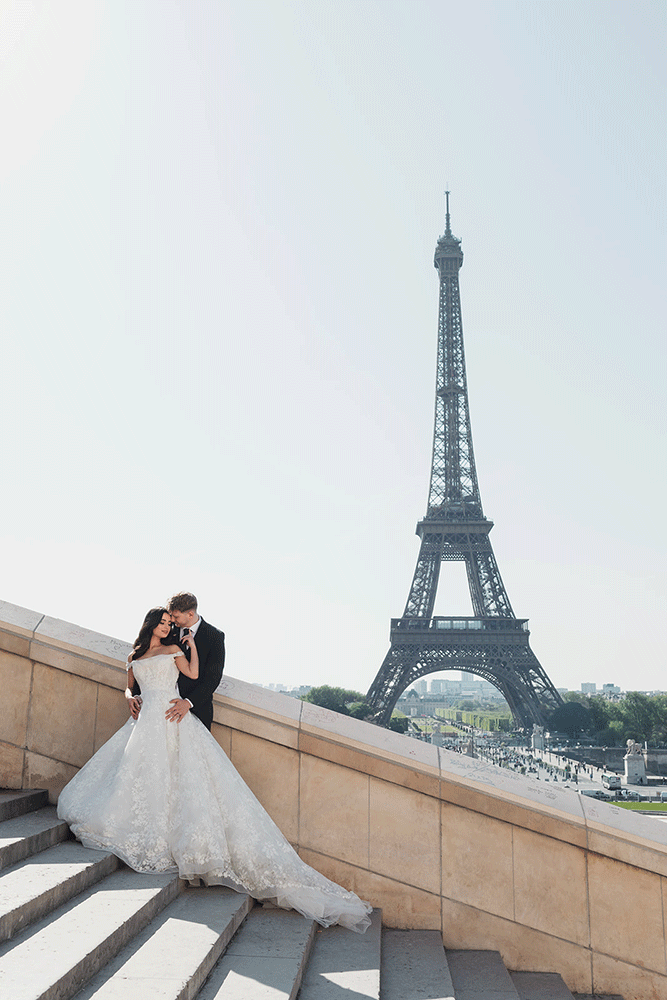
Photo: Cortiella Photography
Plan for Shipping & Travel Logistics
"It's not just you and your guests who need to get there — think through how your dress, suits, favors, and décor will travel. Ship décor items well in advance and track them carefully. Carry attire and essentials in your carry-on luggage when possible. Understand customs regulations for bringing items in and out of the country (especially food, alcohol, or flowers). If you are bringing a lot of duplicate items, such as favors or gift bag items, bring your receipts and info about the wedding as customs officials may think you are bringing items in to sell without paying tariffs. We had this happen entering Mexico and it took a while to convince them to let us continue on with our gift bag items." —Cathy O’Connell, Co-Founder/Creative Director, COJ Events
"Getting your wedding dress, suits, or custom décor to your destination can be tricky. Shipping internationally means dealing with customs, taxes, and possible delays. Tip: If possible, carry important items (like your wedding attire) with you on the plane. For décor or favors, look into sourcing items locally or working with a destination planner who can help you rent or purchase on-site." —Jennifer Cortiella, Cortiella Photography
"If you're shipping favors or welcome bags, make sure to factor in customs delays. Some countries may hold packages for inspection or require additional paperwork or taxes upon arrival. It's helpful to have a customs broker assist, and always ship with a lot of buffer time!" —Vivid Occasions Team, Vivid Occasions

Photo: Cortiella Photography
Coordinate with Overseas Vendors & Planners
"Set up clear contracts outlining deliverables, timelines, and payment terms. Schedule virtual meetings early and often to align on design and logistics. Confirm who will handle setup, breakdown, and any post-wedding arrangements. Allow lots of time for planning. International vendors often take longer to get a response from than US based vendors." —Cathy O’Connell, Co-Founder/Creative Director, COJ Events
"When your wedding team is scattered across different time zones, communication can quickly become a headache. Tip: Schedule regular check-ins with your planner or vendors in their local time, and use shared documents or wedding platforms to stay organized. A bilingual planner or vendor fluent in English is also a game-changer!" —Jennifer Cortiella, Cortiella Photography
"Have regular video calls with your planner and vendors to stay in sync throughout the planning process and schedule a final meeting call as your wedding date approaches. These check-ins help keep everyone accountable, prevent last-minute surprises, and give you the chance to review timelines, layouts, and any pending items together in real time. Consistent communication ensures that nothing falls through the cracks and that your vision stays clear from start to finish." —Vivid Occasions Team, Vivid Occasions
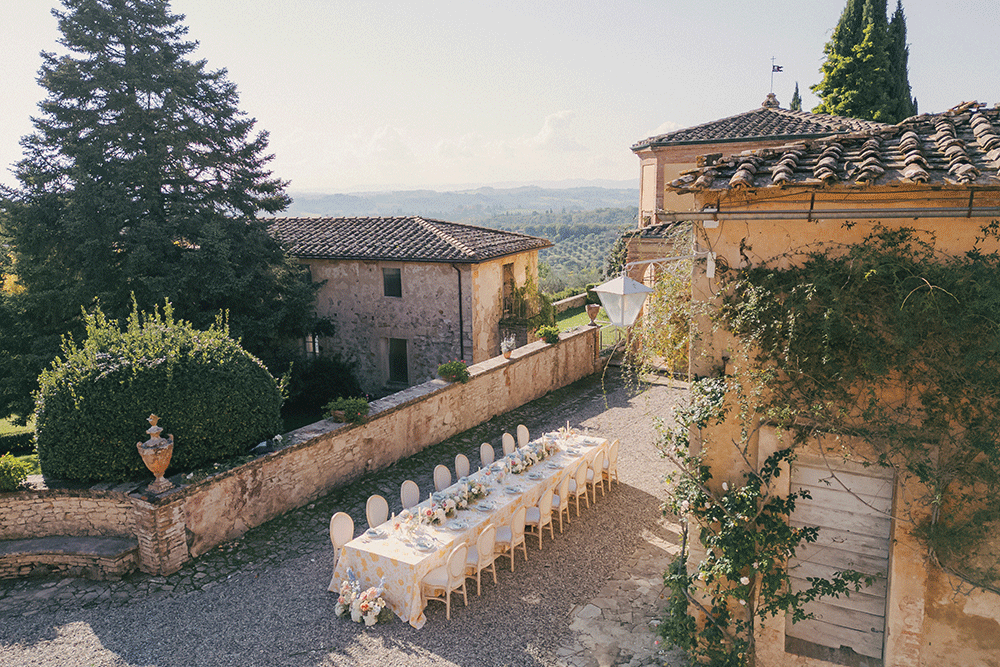
Photo: Masha Sakhno Photo
Coordinate Logisitics With Your Photographer
"Some of the most important photography decisions actually happen before the cameras ever come out. For starters, be sure your photographer is planning to arrive at least 48 hours before your events begin if they are not local to the area. That extra time isn't just for recovering from jet lag. It's a window for scouting locations in the best light, connecting with your planner, and building in a buffer in case of travel delays. It's a simple thing that makes a big difference. You'll also want to talk through where your portraits will happen, and whether any of those locations require photography permits. Many iconic spots like historic churches, gardens, and museums look like a dream online but require paperwork and sometimes fees for professional shoots. Some restrict photography altogether. Your planner may know the rules, or your photographer can help look into it. And here's something couples don’t always expect: most of those 'hidden gem' photo spots are not so hidden in real life. By midday, the quiet alley you pinned might be full of tourists and at least one person recording your portraits with their iPad. (Awkward.) We've learned to time things carefully, avoid crowds when we can, and stay flexible if the vibe is more chaotic than charming. The more you talk through the logistics early on, the more present and relaxed you'll be when the day arrives, knowing your photographer is fully prepared to capture the story as it unfolds." —Alison Stevenson, Alison Mae Photography

Photo: Cortiella Photography
Hire a Local Wedding Planner
"A local wedding planner is your best investment for an international wedding. They know trusted vendors, can handle language barriers, and will manage any last-minute surprises. We always hire a local team member when we are traveling abroad." —Cathy O’Connell, Co-Founder/Creative Director, COJ Events
"One of the best investments you can make is hiring a planner who's on the ground — someone who knows the language, the vendors, the culture, and the red flags. Tip: Even if you're a type-A planner yourself, having a local expert ensures nothing gets lost in translation (literally or figuratively)."—Jennifer Cortiella, Cortiella Photography
"Hire a local planner or destination wedding specialist fluent in both languages to make the entire process smoother and more stress-free. They'll navigate legal requirements, handle submitting documents on your behalf, and liaise directly with local vendors so nothing gets lost in translation. Their language fluency helps prevent misunderstandings about contracts, pricing, and timelines, ensuring everything stays clear and organized from start to finish." —Vivid Occasions Team, Vivid Occasions
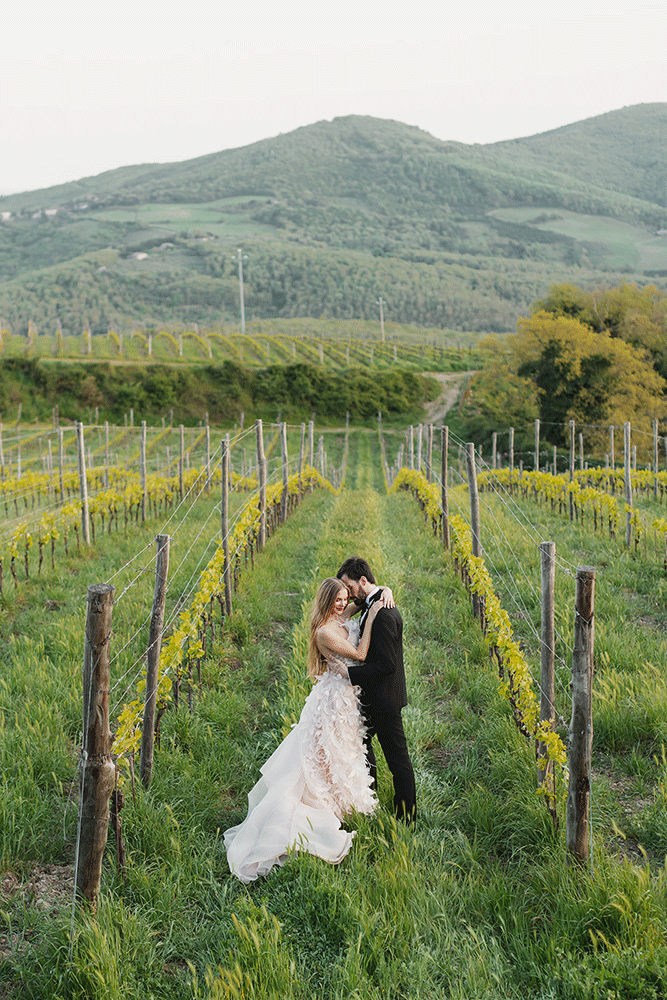
Photo: Cortiella Photography
Make Travel Easy for Your Guests
"You're asking loved ones to travel across borders for your big day — help them say yes. Send save-the-dates at least 9-12 months in advance. Block hotel rooms and negotiate group rates. Provide travel guides, local tips, and recommendations to help guests make a mini-vacation of it." —Cathy O’Connell, Co-Founder/Creative Director, COJ Events
"Guests are taking time (and spending money) to travel for your wedding — so make it easy and enjoyable for them. Tip: Provide a detailed welcome guide with travel info, itinerary, and local tips. Consider welcome bags with essentials like water, snacks, sunscreen, or cultural keepsakes." —Jennifer Cortiella, Cortiella Photography
"Keep guests in the loop. They’re traveling to a new place and will have questions about everything from vaccinations to local customs. Create a wedding website with all the details: travel tips, itinerary, dress codes, gift preferences, and allergy information. It's the easiest way to keep everyone informed (and excited!)." —Tracy Guerrero, Indigo & Visit Antigua and Barbuda
"Set up a wedding website with an FAQ section to save yourself countless emails and keep everyone on the same page. A well-organized site keeps guests informed about travel requirements, dress codes, event schedules, and important deadlines. It’s especially helpful for those traveling internationally for the first time, as it reduces confusion and stress. Be sure to include clear travel instructions, such as which airport to fly into, how to book reliable transportation, directions to your resort or venue, room block reservation details, and recommendations for local restaurants, bars, and activities to help them make the most of their trip.” - Vivid Occasions Team, Vivid Occasions
Have a backup plan. "Weather, travel delays, or political unrest can impact plans. Secure wedding insurance. Have a plan B for outdoor ceremonies. Keep extra days in your travel schedule to handle unexpected hiccups." —Cathy O’Connell, Co-Founder/Creative Director, COJ Events

Photo: Alison Mae Photography
Schedule Buffer Time for Travel Delays and Jet Lag
"You'll want to arrive with time to spare — not just for last-minute meetings, but also to adjust to the new time zone and be fully present on your big day. Tip: Arrive at least 3–5 days before the wedding. This also gives you a chance to do a final venue walk-through, meet vendors, or host a casual welcome dinner." —Jennifer Cortiella, Cortiella Photography
Decide who to hire local vs. bringing from home. "One of my biggest tips for couples planning a wedding outside the US is to think carefully about which vendors to hire locally and which to bring in from home. For florals, catering, rentals, and design, I always recommend sourcing locally — these vendors know the seasonal blooms, local cuisine, and venue logistics better than anyone. But for photo, video, and even your DJ or entertainment, I suggest bringing in your own team. Not only do you avoid potential language barriers, but you're more likely to get a style and experience that truly feels like you. Working with a team who understands your vision and cultural expectations can make all the difference when you’re celebrating so far from home." —Masha Sakhno, Masha Sakhno Photo
"Some guests may be traveling long hours and crossing time zones, so try not to schedule big events right after arrival times. Including a welcome event, pool day, or just free time before the wedding helps everyone adjust, rest, and enjoy the full experience." —Vivid Occasions Team, Vivid Occasions
If possible, schedule a pre-wedding visit. "Schedule a pre-wedding visit to your destination so you can experience everything firsthand. Touring your ceremony and reception sites in person allows you to see the lighting, space, and flow of the venue, which is hard to fully capture in photos or videos. While you're there, you can taste the menu, trial your hair and makeup, and even do a design mockup with your planner to finalize décor details. This visit helps you feel confident that every element will look and feel exactly the way you envision on your wedding day." —Vivid Occasions Team
Research weather for your destination. "Researching the weather at your wedding destination is essential to avoid unexpected surprises. Weather can impact everything from your outfit choices to the overall logistics of the event. For instance, planning an outdoor ceremony during the rainy season or extreme heat could make things uncomfortable for both you and your guests. Knowing the typical weather conditions helps you pick the best date, choose the right venue setup (like a tent or indoor option), and make smart decisions to ensure your big day goes smoothly and beautifully." —Vivid Occasions Team
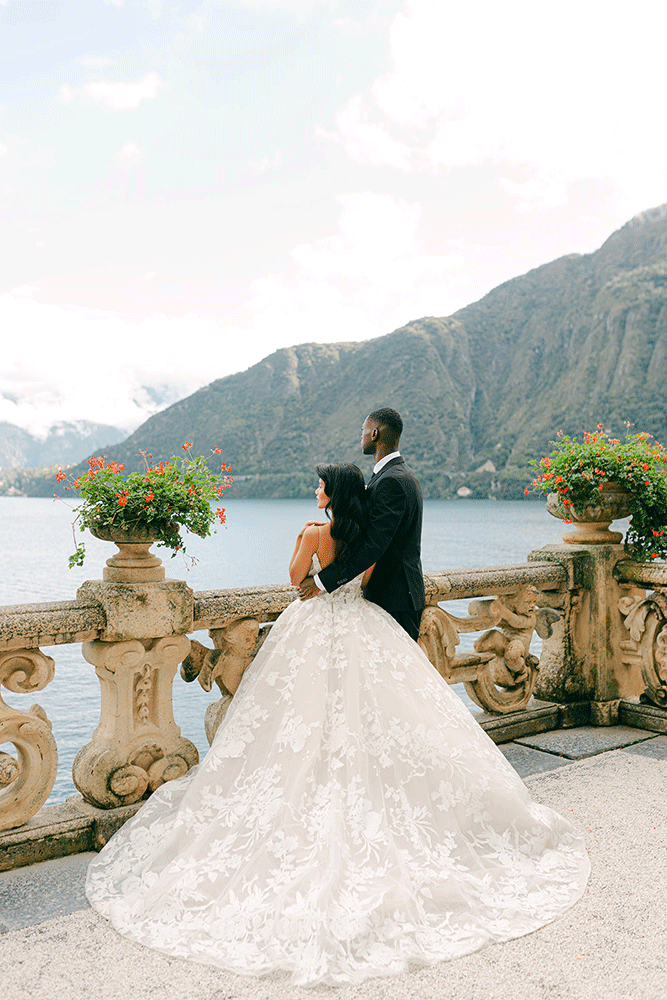
Photo: Alison Mae Photography
Bonus: Things to Not Forget
Don't forget your passport. "Making sure your passport is valid is one of the most important steps when planning a destination wedding. Many countries require that your passport be valid for at least six months beyond your travel dates. An expired or soon-to-expire passport could prevent you from boarding your flight or entering the country. Double-checking this detail early ensures a stress-free journey and helps you avoid last-minute emergencies before your big day." —Vivid Occasions Team, Vivid Occasions
Don't forget rings and stationery items for photos. "They're small but essential details that are often overlooked during travel. These items not only hold emotional significance but also enhance your wedding photos, especially for flat lays and detail shots. Be sure to pack your rings in a secure pouch, include your vow books or printed vows, and bring along your invitation suite, paper goods, and any special accessories like jewelry or cufflinks. Keeping them in your carry-on ensures they arrive safely and are ready when your photographer needs them." —Vivid Occasions Team
Tan lines. "Easily overlooked, but they can make or break your photos. From the moment you land, stay consistent with your sun exposure, and make sure any straps or necklines match your wedding dress. Grooms, watch for sleeve marks and sunburnt noses, too!" —Tracy Guerrero, Indigo & Visit Antigua and Barbuda
Hair & makeup. "Tropical weather can do surprising things to your hair and skin. If possible, schedule a trial a few days before the wedding. Discuss with your makeup artist and stylist how to keep your look fresh and flawless, even in the heat and humidity. Your planner can recommend tried-and-true pros." —Guerrero
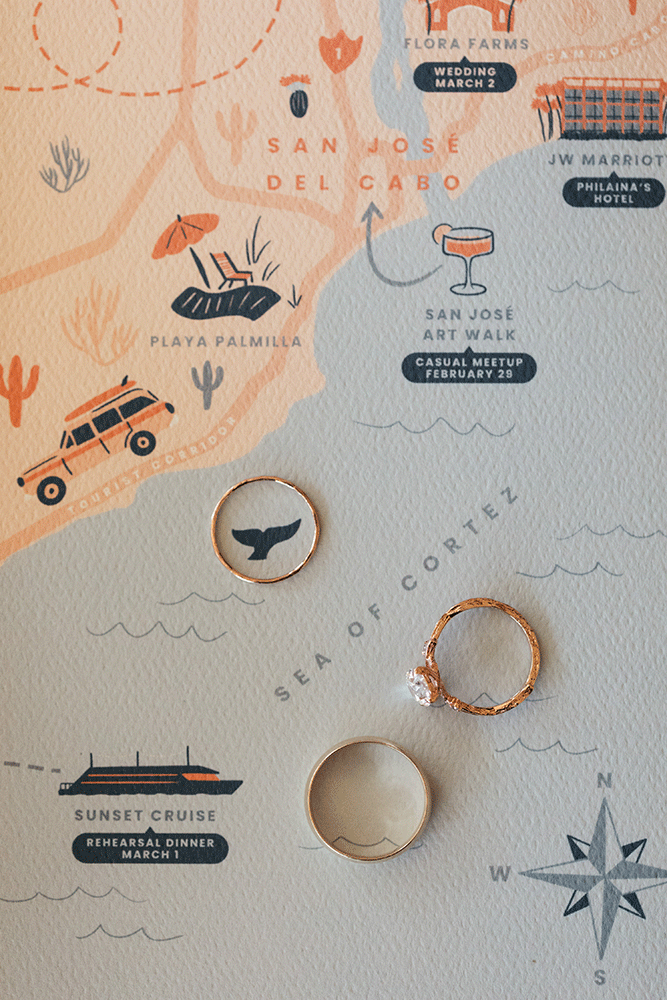
Photo: Anna Gomes Photo


